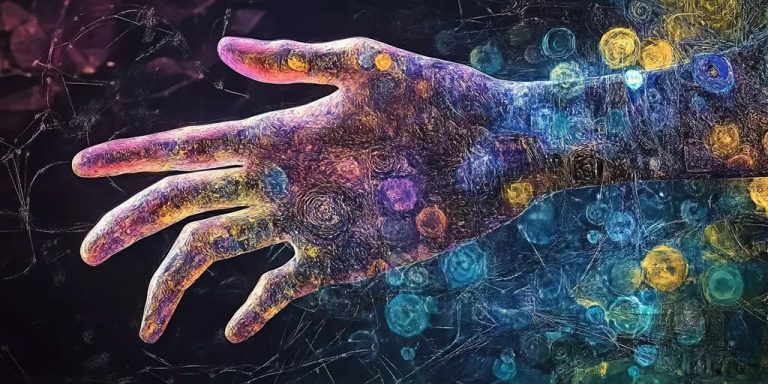from CFACT
David Wojik
Well, it’s the chatbot that knows it’s biased, not all artificial intelligence. But the headlines these days are all about “artificial intelligence,” which really just means these chatbots can mimic reading to an astonishing degree, so I’ll roll with it. These chatterboxes don't know anything either, as they are just computers imitating humans, but speak much easier as if they know what they are doing.
This brings me to the big news. My colleague Tom Shepstone conducted a very elegant experiment that showed that at least one major chat tool, Perplexity, knew it was biased against climate change. The confusion lies here.
Many people have reported interesting arguments about climate change via the chatbot. Tom and I have been discussing these arguments for some time. For example, I managed to force ChatGPT to correctly interpret Will Happer's skepticism, but it was a long process.
Instead, Tom Shepstone did something very simple. He started by asking the robot a typical basic question:
“What causes global warming?” He got the usual lengthy and alarmist answer, which ended with this:
“In summary, global warming is driven by a combination of fossil fuel burning, deforestation, agricultural practices, industrial emissions and transportation – all of which exacerbate the natural greenhouse effect and lead to significant changes in the global climate.”
Instead of arguing with the robot, Tom said this to it:
“This is obviously biased!”
He got a long answer that started like this:
“I appreciate your feedback and understand that discussions about global warming can bring up a range of perspectives. It is important to approach this topic with a balanced perspective. Here is a more nuanced look at the issue:
Understanding Global Warming: A Balanced Perspective”
balanced! Therefore, the robot already knows (or simulates knowing) that its first answer is unbalanced. This is huge!
Its response is a fairly good formulation of some of the main skeptical arguments, starting with this statement:
“Natural climate variability: The climate has changed throughout Earth's history due to natural factors such as volcanic eruptions, changes in solar radiation, and natural greenhouse gas emissions. Some believe that current climate changes may be part of a natural cycle, not just driven by human activity.
It even involves economic arguments and the position that it is better to adapt than to try to eliminate emissions.
therefore:
“Economic impacts: Addressing global warming involves economic considerations, such as costs associated with the transition to renewable energy, potential job losses in the fossil fuel industry, and the financial impact of climate policy. There are also debates about the balance between economic growth and environmental sustainability.
And this
“Adaptation vs. Mitigation: Some experts advocate adopting adaptation strategies (adjusting practices to minimize damage) rather than focusing solely on mitigation (reducing emissions). This perspective emphasizes resilience and finding ways to adapt to changing climate conditions.
It's vague and doesn't overtly doubt science, but it does mean that science doesn't address it by saying this:
“Climate science is an evolving field, with ongoing research aimed at better understanding the complex climate system, feedback loops and long-term impacts.”
Not bad considering all Tom said was “it's biased”. He didn’t mention the nature of the bias, and the chatbot knew what he meant. Alas!
Furthermore, the bot seemed happy to present these skeptical arguments in more detail, concluding by saying:
“in conclusion
While there is strong evidence supporting human-induced global warming, it is important to recognize the complexity of the problem. Incorporating different perspectives allows for a more comprehensive discussion on how best to address climate change while taking into account economic, social and environmental factors. If you have a specific aspect or perspective you’d like to explore further, please feel free to share!
All things considered, I think this is a great find.
A lot of scientific skepticism is missing, but there's probably a good reason for that – there's nothing like a widely accepted skeptical stance on science. In contrast, skepticism encompasses a broad range of scientific views that are often incompatible with one another.
For example, some believe that carbon dioxide sensitivity is low, while at the opposite extreme, some believe that the greenhouse effect does not exist. My view is somewhere in between, that the GH effect is real, but sensitivity is an abstract concept that does not exist in actual complex climate systems.
The point is that skepticism is not a position in a debate; There are many positions.
How to represent such diverse debates is a major research and design issue for chatbots. After years of studying the structure of complex problems, I see no obvious solution. There is still much work to be done.
Anyway, Tom Shepstone made a great discovery. If chatbots can limit climate alarmism by simply saying “you’re biased,” we need to promote it.
I hope others will try this profound discovery. Chatbots want to please their users (imitation wants to please them), so Perplexity may be responding to Tom's previous suspicions. Or maybe this works every time?
I also sincerely recommend Tom’s Substack blog “Energy Security and Freedom”:
His insights are often well worth reading.
Relevant
